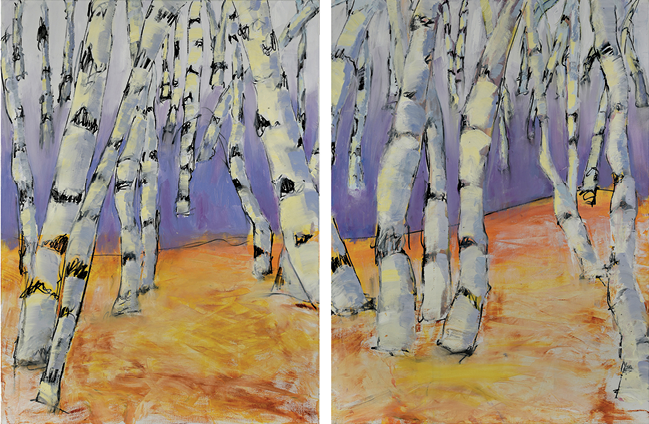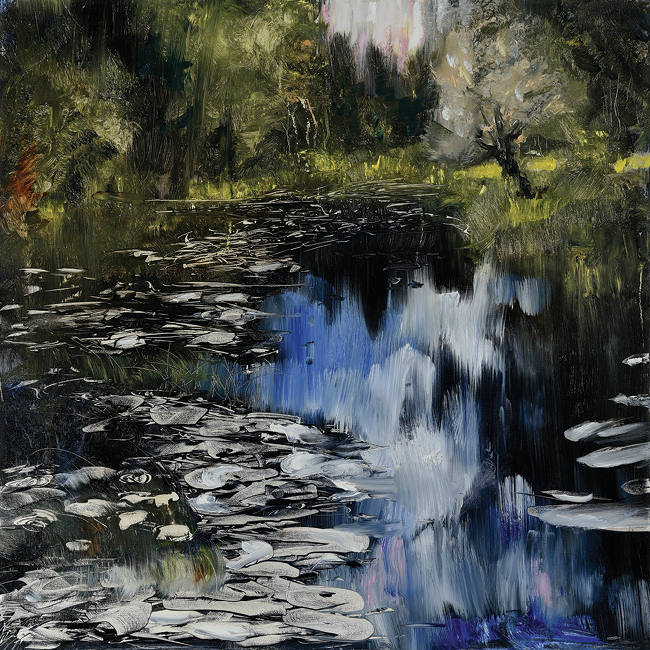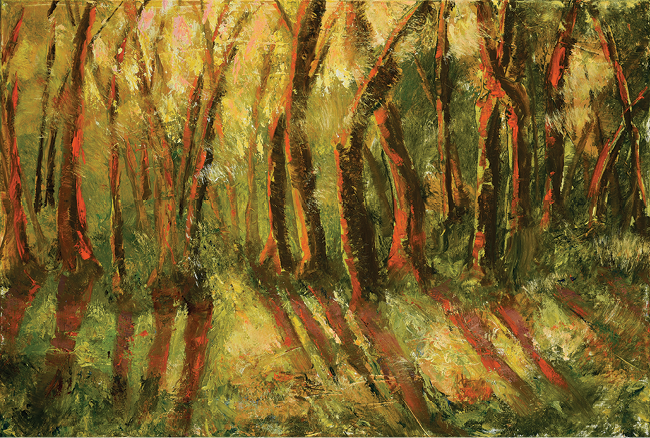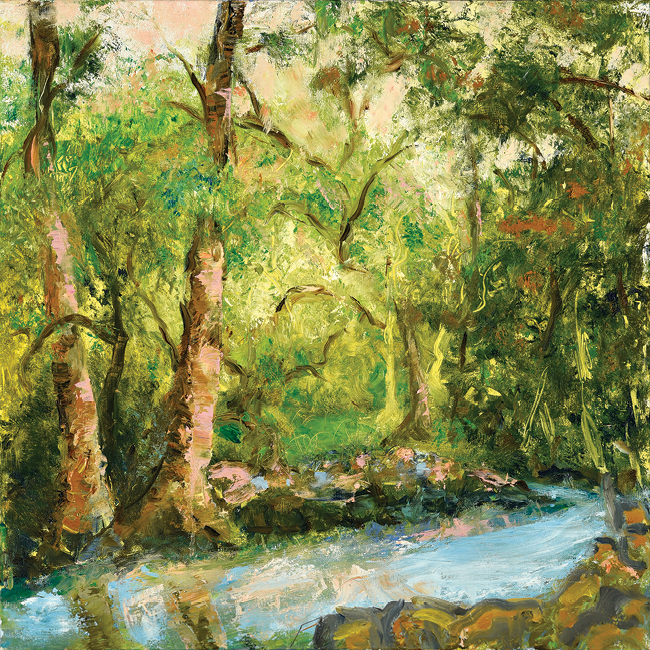- Home
- Media Kit
- MediaJet
- Current Issue
- Past Issues
- Ad Specs-Submission
- Ad Print Settings
- Reprints (PDF)
- Photo Specifications (PDF)
- Contact Us
![]()
ONLINE
![]()
ONLINE

The Healing
Power of Art
Did you always know that you had a passion to be an artist, and will you discuss your artist journey?
My passion for the arts was “inherited.” My mother and sister were both accomplished artists. When I was in college an art teacher pulled me aside and suggested that I choose art as a career. That set me on my path.

Elegant Birch Trees – an oil on canvas diptych,
40 x 30-inches each side. With colors that sing.
How do you define the mission and purpose of your art?
I have often said that artists have the right and even the obligation to comment on society. Thus, my first choice as a topic was to highlight our ecology and global warming by painting the beauty of green leaves, beautiful trees, and grassy shores. My first five solo shows in Paris were about the ecology and global warming. Last year, coming out of the pandemic, finding peace seemed a more important message. At the two solo shows in Manhattan the topic was, “There Will Always Be Light.”
I would love it if we could develop a coalition of artists who would paint to highlight the dangers of global warming.

Winding Allée – 40 x 30-inch oil on canvas
What role do you feel art can play in improving wellness and reducing stress?
The arts can play a tremendous role in our lives. Think of the last time you saw a beautiful sunset – you took a deep breath, sighed, relaxed, and felt a calming. It is the same with a painting, sculpture, and music – harmful stress, tension, and fear are all calmed. A recent research project concluded that an experience of visiting a museum can reduce your blood pressure measurably. The arts are calming to many – beauty begets beauty.
When I start to paint, I bring many images that I have seen and experienced. I interpret the color scheme and a design where movement lies. I then will let my creative brain do the work.

Waterscape – Reflections on beautiful clean
clear water; 30 x 30-inch oil on canvas
Experiences have often led to creative output. On a drive from Avignon north through Provence, I was enamored with the small, tree-lined roads (called allée in French). My result was five paintings, one of which won a first-place prize at Silvermine Arts Center. This is an example of loving an experience and letting go and allowing your creative brain to take over. I note frequently that Claude Monet was quoted as having said that 90 percent of a painting is done without a brush in your hand.

Golden Light Through the Trees –
There will always be light; 36 x 24-inch
oil on canvas
When I see the outcome of my paintings, I sometimes like it and sometimes know that it needs work. I remember Picasso’s words, “let the paint talk to you and tell you what to do.” For me, I like to see special colors come together. I say they “sing” together. This is called simultaneous contrast and this color technique was the inspiration for the Impressionists. It is when you put certain colors next to each other, they will modify how your brain sees each color.

A Stream Into the Mist – 24 x 24-inch oil on canvas
For me, the color is my joy in a painting; the gestural stroke is the passion in a painting.
Is it challenging to balance your time between your love for creating and producing art with the need to focus on the business side of being an artist?

Marvelous Organic Shapes –
Homage to the beautiful green leaves.
Jan Dilenschneider’s attempt to get people
to fall in love with nature again.
36 x 48-inch oil on canvas
I am delinquent in merchandizing my own works. I spend all my time actually painting. For all of my seven exhibitions in Paris, four in Connecticut, and two in Manhattan, I have been given an invitation to do a solo exhibition. This gives me the freedom to paint what I feel and see. I couple an image that I see with my knowledge of color and design, then let my creative brain go to work.

Golden Rushes on Blue Water –
An example of simultaneous contrast.
You can see the colors sing.
24 x 24-inch oil on canvas
What advice do you offer to young painters hoping to build a career as an artist?
For young painters, I tell them the arts record today’s culture and they must be a part of that. I suggest to beat your own drum, listen to your heart, and observe, observe, observe. No work of art is created in a vacuum. What you see and feel will allow your creative brain to do the work.![]()